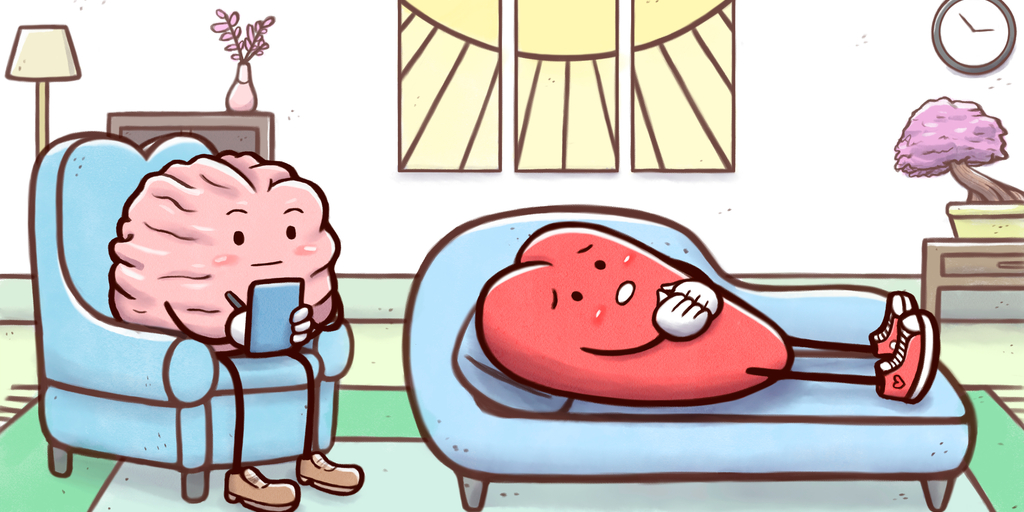
We’re an affiliate!
We hope you love the books we recommend! Just so you know, we may collect a share of sales or other compensation from the links on this page. Thank you very much if you use our links, we really appreciate it.
Long story short, “The 7 Habits of Highly Effective People” is about teaching the foundation principles for personal effectiveness by developing how you view yourself and the world around you. There are 7 main principles, when applied, that will help achieve that effectiveness.
Life is hard. Going through the soaring highs and the rock bottom lows make us loop into a never ending roller coaster of mixed emotions. Each and every day we all strive to achieve happiness, success and a sense of purpose (link to the One Thing), yet it is a lot easier said than done.
Many wish there was some sort of magic pill, million dollar idea or quick fix to have everything fall into place. While there may not be a one-size fits all solution, there are certainly guidelines and practices that stood the test of time used to achieve those goals.
Considered one of the holy books for self-improvement, Stephen Covey’s 7 Habits of Highly Effective People goes in-depth with seven different life principles to win the complicated game of life.
For those who don’t know
Long story short, Stephen Covey is a well decorated author and educator mostly know for “7 Habits of Highly Effective People”. He was also one of Times magazine’s most 25 influential people in 1996.
When referring to “winning the game of life”, Covey illustrates this by living a principle centered lifestyle that involves strong character of integrity, and the will to develop the skills & desires to live a fulfilling life not only for ourselves, but for the world around us.
Here are Covey’s famous habits listed below:
- Be Proactive
- Begin with the End in Mind
- Put first things First
- Think Win-Win
- Seek first to Understand then to be Understood
- Synergize
- Sharpen the Saw
These 7 habits are divided into 3 separate sections: Habits 1 to 3 fall under private victory which focuses on our internal self. Habits 4 to 6 align with public victory where importance of working in teams and building relationships is emphasized. Lastly, Habit 7 is under renewal to provide balance to put all of the habits together.
Let’s dive into each habit.
Habit #1: Be Proactive

We control our own destiny. Regardless of the circumstances we’re born in, at the end of the day we have control of our lives. Whether its our genetics, the family we are apart of, or a boss you’ve been assigned to report to at work, what determines our outcomes is based on how we respond to any given situation. Covey illustrates this as the habit of being proactive.
Long story short, being proactive is to be driven by values and not emotion. Since we cannot control every single thing that happens to us every day, as human beings we have the capabilities to tame our emotions and use our mind to develop tendencies such as self-awareness and rational decision making to act on our response.
Covey refers to Austrian psychiatrist Viktor Frankl’s credited work studying the relationship between stimulus and response. Famous for his book “A Man Search for Meaning”, Frankl proved that we can decide within ourselves to accept the situation for what it is OR have the freedom to react in a different way independent of that environment. His empowering story of surviving a Nazi death camp where he explained that by having a sense of purpose, you can take responsibility of controlling your life instead of having an environment dictate what happens to us. That mentality is what got Frankl through the horrors and separated himself from the many fellow prisoners who did not survive.
Habit #2: Begin with the End in Mind

“What do you want to leave when you die and be gone from this Earth?”.
In order to answer this question, Covey explains that in life, one must being a pursuit with a clear destination in mind. What he means is that having a strong sense of purpose is critical to defining your own version of success.
However in order to develop your sense of purpose, Covey understands that each individual has their own personal mission and set of values that would drive them. Developing this personal mission would involve two main parts, what type of character you would like to be and what contributions & achievements would you like to set out for yourself.By defining this, we can provide reason to why we get up in the morning and why we continue to push through when there are obstacles in our path.
With that said, the concept of Principle centeredness is developed by Covey as he identifies sub sections or archetypes as to the different types of principles individuals set for themselves. They include but are not limited to being family oriented, money oriented, career oriented, pleasure oriented, and self-oriented.
Habit #3: Put First things First

We make thousands, if not hundreds or thousands of decisions each day. They can range from what we eat for breakfast to what our next million dollar idea is. Making decisions is not the hard part, the hard part is deciding which decisions we should focus our time on.
With this habit, Covey illustrates a decision-making framework to put First things First and make the right decision that aligns best with our goals developed from Habit 2. The basis of this framework is to identify decisions based on importance (how closely it aligns with your goals), and urgency (how immediate is addressing this activity). This framework is broken down into four quadrants:
- Quadrant 1 (High importance, high urgency): Putting out fires and crises situations
- Quadrant 2 (High importance, low urgency): Focusing on big-picture activities
- Quadrant 3 (Low importance, high urgency): Perceived to be highly important, but waste of time
- Quadrant 4 (Low importance, low urgency): Nothing important and mundane
We tend to react to emotional activities, which means we are naturally responsive to high urgency situations. However out of all the quadrants, the optimal one to shoot for is Quadrant 2. The reason being is the fact that activities with high importance and low urgency tend to be the activities that align best with our personal mission. Working on Quadrant 2 activities allows us to become effective to optimize our time. This usually involves saying no to many requests such as administrative work, as we prioritize personal management activities.
Habit #4: Think Win-Win

As good as it feels to win all the time and beat the competition, it is paramount to build positive relationships that are mutually beneficial. Sporting icons such as Kobe Bryant, Cristiano Ronaldo and Tom Brady emphasize that there is nothing more important than winning. However by shifting this thought, instead of focusing on solely winning, it is equally if not more important to focus on creating win-win situations.
Through human interactions, there are several dynamics that play out when it comes to establishing relationship roles and discussing agreements to achieve certain outcomes. Every interaction involves roles or character certain parties are playing based on their values, resources and emotional well-being which ultimately affect the outcome.
Covey illustrates a framework that represents different paradigms of human interactions, however states that the ideal approach is to achieve a win-win situation. Under these circumstances, a win/win is where both parties mutually benefit from the interaction as everyone is satisfied. For example, in a negotiation between two parties, both would come out of the interaction getting exactly what they wanted without compromising the other. Think of it as enhancing the pie as opposed to simply dividing the pie.
While every option would depend on the circumstances, other dynamics such as win/lose, lose/win or lose/lose don’t tend to be optimal interactions as parties with losing outcomes would breed resentment or future conflict. Ultimately, to aim for win/win situations, the parties in the interaction should focus on a high level of consideration for other parties involved, and the courage to speak out to understand the underlying issues.
Habit #5: Seek first to Understand then to be Understood

With our natural impulses to speak first before listening, perhaps this is one of the hardest habits to master. The irony is in order to effectively speak we must listen first, however, we often find ourselves often doing the exact opposite.
Listening is often one of the more underdeveloped and overlooked skills when it comes to communication. By developing the ability to listen, you would inspire openness and trust with others when it comes to building relationships. The reason why it is often overlooked is the fact that during interactions, we tend to put ourselves on autopilot with an intent to speak our mind right after the other person is done talking.
When you think about it, it’s like when a doctor prescribes medicine before understanding the symptoms and health history of the patient. Covey refers this to “Diagnose before you prescribe”.
When it comes to situations where you provide advice or solve problems, the concept of empathetic listening is practiced to further develop our intent to understand what the other person is saying during these interactions. By getting inside another person’s perspective, we are able to deepen our understanding of the problems they are experiencing, so that we can figure out more effective solutions.
Covey’s system of applying empathetic listening involves four stages:
- Mirror = Repeating the words that were said to you
- Reframe = Providing meaning to the words you are about to say
- Reflect = Showing empathy and emotionally feeling what they are saying
- Rephrase = Provide reason and intuition to solve the underlying problem at hand
Habit #6: Synergize

We often hear that when it comes to effective teamwork, the whole should be greater than the sum of its parts. Building off Habit #4 (Think Win-Win) and Habit #5 (Seek to Understand then to be Understood), the habit, Synergize is to optimize the output of a collective group. Practicing this habit involves combining empathetic communication with the mentality of producing win/win outcomes to achieve the ultimate form of synergy.
The concept of synergy is to have 1 + 1 = 3, as opposed to just having 1 + 1 = 2.
By creating a group dynamic where each individual can collectively contribute their strengths while covering each other’s weaknesses, the amount of possibilities would be endless. By applying synergy in team environments, this would enable groups or organizations to exercise their creativity to overcome obstacles and to maximize the talent of each individual.
Habit #7: Sharpen the Saw

Life is often a balancing act as it may seem like we are juggling 10 things at once. We are always told to maintain our health, develop our minds, have sufficient finances and spend enough time with family & friends. While it may seem like a struggle and often is, in reality, all of these aspects in our lives act as a part of one large ecosystem to help keep us in check.
The 7th and final habit to “sharpen the saw” involves the concept of renewal as it involves the self-care of our overall well-being.
If we have lofty goals of changing the world, how can we take care of the world, if we can’t take care of ourselves?
To apply the previous six habits, we must acknowledge that our greatest asset is the well-being of ourselves. Covey breaks down four dimensions of self-care to sharpen our saws:
- Physical: Exercising and maintaining our bodies to improve our capability for work and stresses
- Best practices: Eat clean, train hard and get lots of sleep
- Mental: Developing our minds to think broadly and deeply about various aspects around different topics
- Best practices: Reading a wide variety of books, filtering specific types of media that lack substance, and journaling your thoughts
- Spiritual: Defining and committing to a value or principal-based system to lead our life
- Best practices: Meditation, breathing exercises and interacting with nature
- Social/Emotional: Connecting with other people and building long-lasting relationships
- Best practices: Go to different environments to interact with various types of people from different walks of life and contribute to the successes of other people
Summary:

These 7 habits have stood the test of time and had helped many become highly effective people. While it is not a definitive way to live your life, understand that at the very least, they can be guiding principles to help you navigate the complex game of life.
If you would like to give Stephen Covey’s the 7 Habits of Highly Effective People a read while supporting the blog feel free to click here.
Sources for this post:
#1: “Who Was Stephen Covey? Everything You Need to Know.” Childhood, Life Achievements & Timeline, www.thefamouspeople.com/profiles/stephen-covey-2981.php.
#2: Covey, Stephen R. The 7 Habits of Highly Effective People Wisdom and Insight. Running Press, 1989.
#3: “Man’s Search for Meaning.” Beacon Press: An Indigenous Peoples’ History of the United States, www.beacon.org/Mans-Search-for-Meaning-P607.aspx.
#4: Davis, Scott. “The 50 Most Dominant Athletes Alive.” Business Insider, Business Insider, 21 July 2017, www.businessinsider.com/50-most-dominant-athletes-alive-2017-7.






